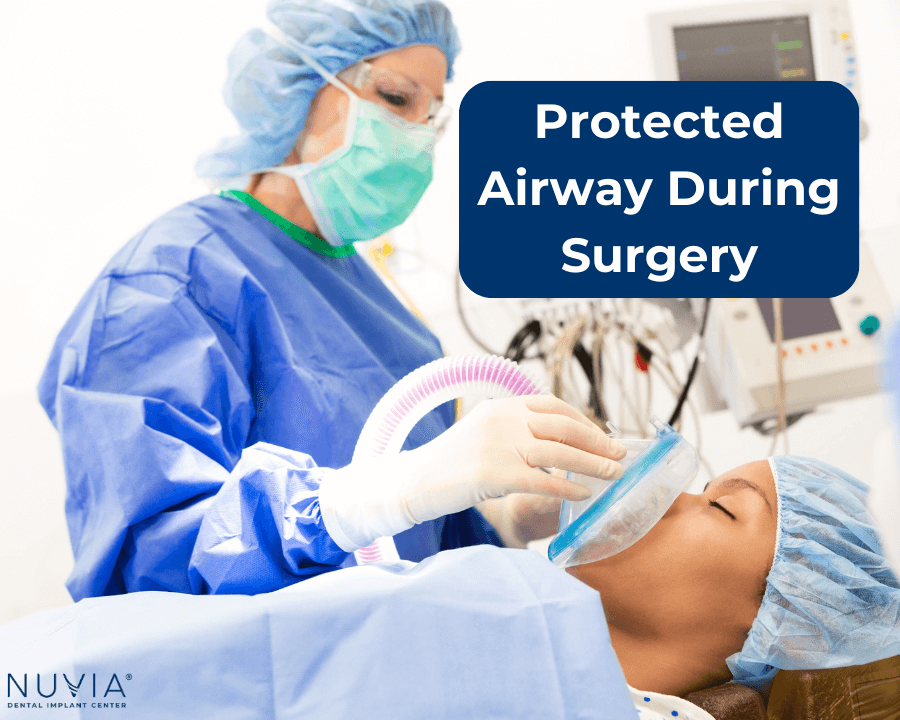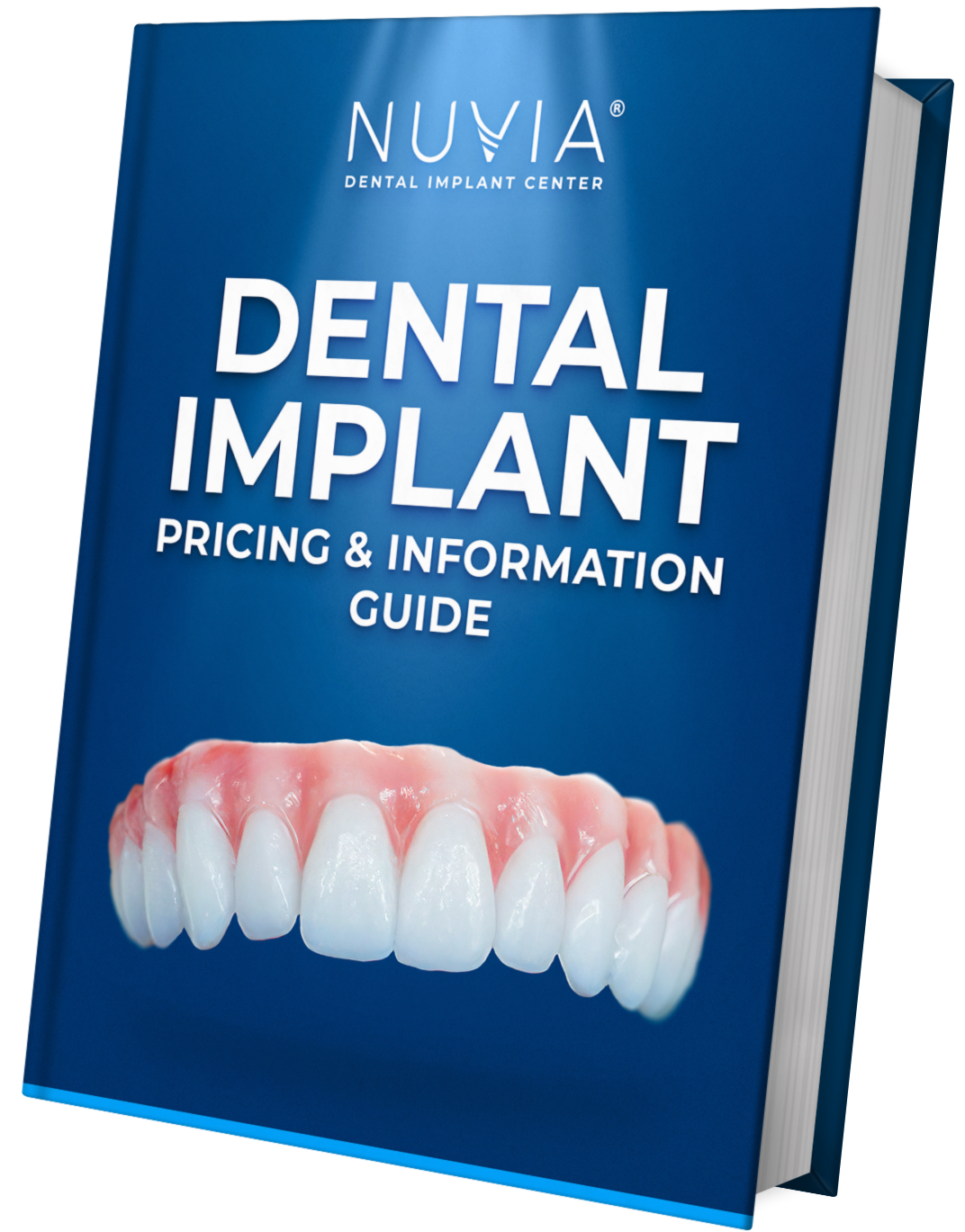
Protected Airway During Dental Implant Surgery

Did you know that in some dental implant procedures, patients remain awake and fully aware of everything happening around them? It's a common approach, but at Nuvia Dental Implant Center, our experience is quite different. Discover how our unique sedation method changes the entire experience.
Local Anesthesia Process
When it comes to dental implant surgery, different providers might use various methods for sedation and pain management. It's important for patients to be aware of these different approaches as they can significantly influence the overall experience of the surgery.
One common method employed in dental implant surgery is the use of local anesthesia. This is a process where the area around the surgical site is numbed, but the patient remains fully conscious throughout the procedure.
Local anesthesia is usually administered by the dentist performing the surgery. The primary purpose is to numb the specific area in the mouth where the dental implant is to be placed. This method can be quite effective in managing localized pain during the procedure. Patients should note that while local anesthesia reduces pain at the surgical site, they remain aware of their surroundings and the procedure as it happens.
It's essential for patients to discuss with their dental care providers the type of sedation that will be used during their implant surgery. Understanding the process, its implications, and what to expect can help patients prepare better for the procedure and manage their expectations regarding comfort and pain management.
Nuvia Dental Implant Center's Approach to Sedation
We prioritize patient comfort and safety in every aspect of our care. This commitment extends to our approach to sedation during dental implant surgeries. Our focus is on providing a comfortable experience for our patients, which is why we ONLY use general anesthesia for sedation in all our procedures. (At NO ADDED COST to you.)
General anesthesia is administered to ensure that our patients are completely comfortable and unaware of the procedure as it happens. This approach allows for a deeper state of relaxation compared to local anesthesia. Under general anesthesia, patients are in a sleep-like state, and their airway is protected and managed throughout the surgery.

One of the primary reasons we use general anesthesia is to optimize the safety of the patient's airway. With our 'protected airway' approach, patients can rest assured that their breathing is continuously monitored and managed by our skilled medical team, led by Certified Registered Nurse Anesthetists (CRNAs). This level of care and attention is a key part of our commitment to ensuring the highest standards of patient safety and comfort.
It's important for our patients to understand that the use of general anesthesia is a part of our dedicated approach to providing a comfortable surgical experience. Our team of professionals is trained to ensure that the anesthesia is administered safely and effectively, prioritizing the well-being and comfort of our patients at every step of the procedure.
Understanding Protected Airway:
When undergoing any surgery under general anesthesia, one of the critical pieces we focus on is ensuring a 'protected airway.' This term might sound technical, but it's actually a straightforward and crucial safety measure. It means that while you are under general anesthesia, our medical team continuously and carefully manages your breathing. Not only does it mean that your breathing is safe but it ensures nothing enters the airway that doesn’t belong there.
The Role of the CRNA:
Our Certified Registered Nurse Anesthetists (CRNAs) are highly trained professionals specializing in anesthesia and airway management. Their expertise is crucial in maintaining a secure airway during surgery. They monitor your breathing closely, making adjustments as needed to ensure a steady and unobstructed airway.
Having a CRNA manage your sedation allows the Surgeon to focus entirely on placing your Dental Implants.
Continuous Monitoring During Surgery:
Throughout your procedure, our team employs advanced monitoring technologies. This continuous dedication allows us to track vital signs and respond immediately to any changes, ensuring your safety at every moment. Your CRNA will be monitoring your breathing and safety the entire time, fully focused on you.

Post-Op Care and Recovery:
Post-surgery, we ensure a smooth transition from the operating room to recovery. Our team closely monitors your return to normal breathing and consciousness, providing immediate care and support as needed.
Addressing Your Concerns:
We understand you might have concerns about anesthesia and airway management. At Nuvia, we're committed to addressing these concerns by providing clear, transparent information and personalized care tailored to your needs.

If you would like to learn more about Dental Implants, including options, pricing and more, you can download our free Dental Implant Cost Guide Here.
More Articles Like This one

Dental Implants: How do they work? What Are They Made of and More

Dentures Rubbing Your Gums? Have You Tried This Fix?






